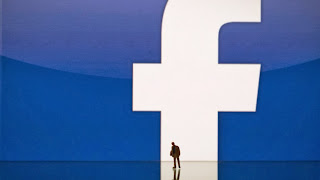Marketers Learn to Play by Facebook's Changing Rules
When Sim Partners, a provider of local and social marketing technology, stopped buying Facebook ads, Jay Hawkinson anticipated a drop in how often the company's posts would appear on the social network's news feed.
The extent of the decline, however, was beyond anything he had imagined.
“We used Facebook advertising to help promote our page and content, but when we turned the ad campaign off, we saw a significant decrease in organic traffic to our page,” says Hawkinson, a partner at the company. “A small drop in organic traffic was expected with the loss of the ad promotions, but we experienced drops between 69% and 83%, numbers which are astounding.”
Hawkinson's company wasn't alone. After Facebook tweaked its News Feed algorithm earlier this year, companies and their social media marketers had to watch as years of work were undermined seemingly overnight.
Brands that committed time and money to build up brand pages with millions of followers, particularly groups that had been cutting back on advertising spending, suddenly received less of the valuable customer contact that had attracted them to the social network.
The move highlighted a frustrating reality for advertisers: Social media efforts operate at the whims of companies that own the platforms and write the algorithms that drive some of the most effective tools in a marketer's arsenal. There is little they can do other than adapt.
"I think the thing that we found as [Facebook] has been playing around with these changes, getting in front of our users on the News Feed has been a little bit more challenging," says Anthony Soohoo, cofounder and CEO of Dot & Bo, a startup that sells home furnishings. "But it's like any change. When Google changes its algorithm or if Twitter changes, it does impact how we as marketers have to think about managing our communication."
No Free Lunch
Since Facebook tweaked the News Feed algorithm in early December, brand posts have been appearing less often. Brands noted it and Facebook admitted it. Furthermore, a sales deck from Facebook acquired by AdAge highlights Facebook's recommendations that the lack of unpaid appearances of brand pages on the News Feed — known as organic reach — could be offset by increasing ad buys.
This pay-for-play is par for the course, says Brenda Arndt, a website marketing and program manager at Amplifon, a maker of customized hearing solutions.
"The idea of organic reach dropping a little bit, we always knew that we'd actually end up advertising on Facebook to reach more people than what we could in organic anyways. So its not necessarily overly surprising that that's what we're going to have to do," she says. "I think that we're definitely comfortable with the fact that we're going to have to advertise to get some reach.
"I've never felt like Facebook is a free tool to reach our customers."Facebook is a powerful platform not just for advertising, but also for brands to connect with consumers at an unpaid level. This type of connection is the most effective marketing that a brand can achieve, says Jim Tobin, president of Ignite Social Media, a social media marketing firm.
“It’s just human nature. If you discover content, if you feel like you found something on your own, you’re much more likely to explore it,” Tobin says. “That organic exposure is incredibly valuable to brands from a sales proposition.”
You Win Some, You Win Some
Facebook is far from the only site that makes tweaks. Google changes its algorithm 500 to 600 times each year, including 15 major changes in 2013, according to marketing analytics firm Moz. Google accounts for a 42% share of the US digital ad market, compared with 9% for Facebook.
For its part, Facebook has not only acknowledged that algorithm tweaks have resulted in less organic reach, but also stated that this was the goal. The site has existed for almost 10 years, and users have piled up plenty of Liked pages they may have forgotten about, says Brandon McCormick, director of communications at Facebook. He uses an example of a hypothetical Facebook brand page for shoes that he Liked a while back.
If he has not visited that brand page or interacted with it lately, the algorithm will make it less likely for that company's posts to show up in the user's News Feed.
“Over time, I don’t go to that page very much. I’ve seen a few stories in my news feed, but I don’t click on them. I don’t share or comment on them," he says. "Over time the algorithm is going to say, ‘OK, he’s probably not that closely connected to that content."
“I think we’ve always been clear with advertisers that our main focus, especially when it comes to News Feed, is the experience that people have.” Advertisers will suffer if the overall user experience suffers, McCormick says.
Whether advertisers will continue to be sanguine about Facebook's algorithm adjustments remains to be seen. David Salama, CEO of FlyCleaners, a company that operates a mobile app for on-the-go laundry service, said the changes have cost his operation. While that does not mean they are abandoning Facebook, it has pushed his company to look for other ways to advertise.
"We've been using [Facebook] less since the algorithm change because we don't want to throw resources at things that people won't ever see," Salama says. "We want to first try a whole slew of things in order to see what the changes mean and once we're confident that we understand the implications of the change, we'll resume using it at previous levels. However, all that trial and error has cost us a lot of time and resources that, frankly, we'd rather be spending elsewhere."
By: Jason Abbruzzese via Mashable


Comments
Post a Comment